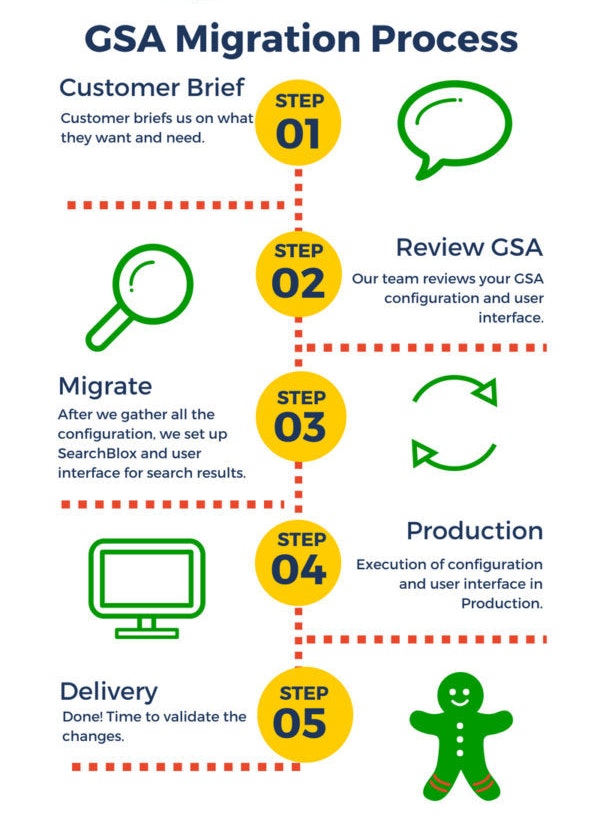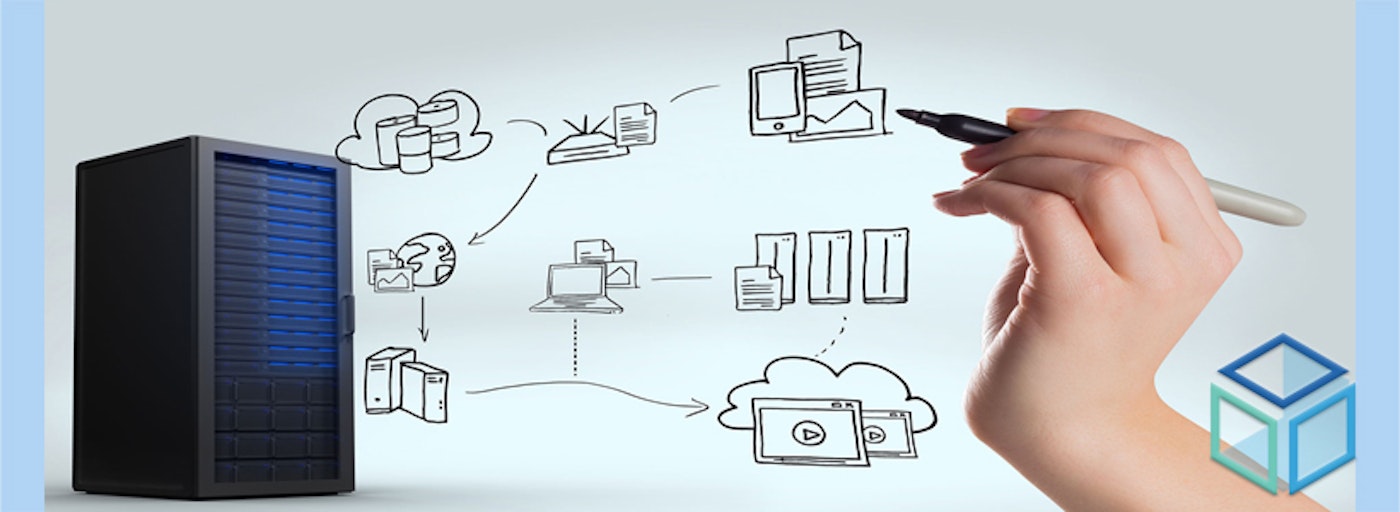The phasing out of Google Search Appliance (GSA) continues to proceed as scheduled. How you move forward with your search strategy in the upcoming months helps in determining long-term success. While support for the GSA continues until 2019, starting to think about your plan now gives you ample time to carefully weigh various factors and lay out a seamless, well laid out strategic plan.
Consider this road map when formulating your Google Search Appliance migration strategy.
Assessment of Needs: On-Premise or Cloud?
Some organizations made the choice to move forward with the Google Cloud Platform, a 100% cloud-based solution. No concrete details from Google have surfaced, however they mention the platform will support some search functionality as well as machine learning, graph search, and natural language capabilities.
Aside from the Google Cloud Platform, other enterprise-grade cloud options exist on which to build a search application. From our experience implementing applications on AWS ElasticSearch, Amazon CloudSearch, and SearchBlox we’ve found they possess great versatility and reliability as cloud solutions.
In some instances, a fully cloud-based platform may not perform optimally for every organization. If complications arise due to compliance or other requirements, an on-premise or hybrid search solution might perform better. If this is the case, there a wide range of open source and commercial search engines exist as great alternatives.
Once you acquire a course of action to either move to the cloud or migrate to an on-premise search solution, the next step is to think about the migration approach.
Strategic Communications performs multiple Google Search Appliance migrations and a variety of other search engine migrations. These migrations typically fall into one of two approaches as below.

-
Google Search Appliance applications with complex, custom search features
If you use Google Search Appliance (GSA) for mission-critical search applications, a comprehensive assessment of requirements and extensive planning ensures migration success.
We apply a proven assessment methodology to our GSA migrations that prove successful. Not only did the migration replicate the applications, but also in allowing customers to improve their users’ search experience. In brief, we find that migrations unveil great timing to re-evaluate your application as well as add new features and functions.
Our assessment results in a comprehensive project plan based on your organization’s input at all levels – from C-Suite executives to IT professionals to critical stakeholders. Most migrations start immediately using our resulting project plan as a blueprint.
Here are some scenarios in which this approach works well:
- You have multiple content sources that need to be indexed for search.
- You have complex databases of structured and unstructured data.
- There are advanced, unique search features that you have developed over time.
Many of our customers rely on this assessment methodology to guide them through this process. It covers all aspects of the migration, beginning with the evaluation and selection of the right search technology to replace your Google Search Appliance.
For most of our customers, a look at these common but important criteria is very helpful in providing a compare-and-contrast view of the potential replacement search engines:
- Open source vs. commercial search engines
- Scalability
- Connector configuration requirements
- Content processing and indexing capabilities
- Relevancy tuning capabilities
- Available hosting environment
-
Basic search applications with mostly out-of-the-box GSA features
On the other hand, many organizations run on readily-available, pre-built Google Search Appliance features. These organizations just need to keep search undisrupted once Google stops supporting the GSA. In this case, a more straightforward, simpler migration may work. This approach is the most efficient and effortless if your search application handles:
- Simple website search
- Windows and CIFS fileshares
- Database search
- A combination of these content sources
Strategic Communications plans your migration through concise assessment of the features your organization needs. Using the data from our initial assessment we create a migration roadmap based on your current GSA configuration. The migration roadmap contains a custom project plan designed to replicate your current configuration as closely as possible.
The Google Search Appliance Migration
Developing a thorough migration strategy gives you a great head start. It guides you through the following implementation activities:
- An evaluation of search technologies to replace your GSA search application
- Mapping your data from the Google Search Appliance to the new search engine
- Configuring your hosting environment
- Configuring your search application to replicate or enhance the GSA features
- Ongoing support and maintenance
How Do You Get There?
Currently, comprehensive guidelines from Google are not yet available. However, our GSA experts’ are here to answer some of the most commonly asked questions. In addition, within the remaining window of Google support, your team will find it challenging to migrate your current search application.
Strategic Communications bridges the gap during this transition. We maintain strong relationships with other open source and commercial search engine leaders. With our expertise from multiple GSA implementations, Strategic brings the right approach and best practices to guide you through this transition successfully.
For more information on Google Search Appliance migrations, visit www.yourstrategic.com/contact-us to speak with our solutions specialists!
Share this Post

